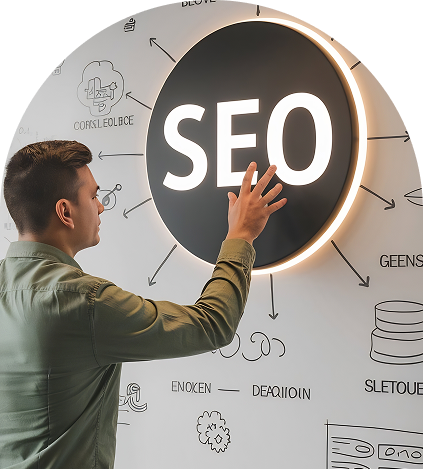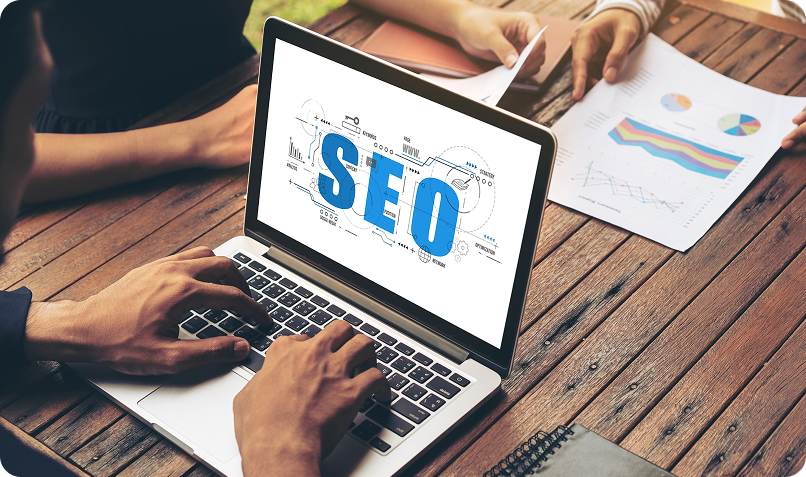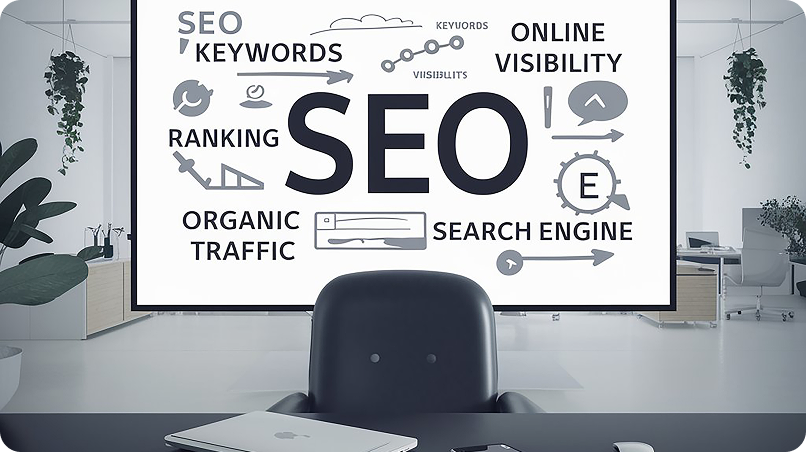
The What, Why, & How of SEO vs SEM for Your Brand
When it comes to digital marketing, one of the first decisions you’ll face is whether to focus on SEO vs SEM. Both strategies are vital for improving your brand's online visibility and driving traffic to your website, but they function in very different ways. In this guide, we’ll break down the key differences, benefits and how each approach can work for your business.
What is SEO?
What is SEO? SEO, or Search Engine Optimization, is a long-term strategy that focuses on increasing your website's visibility on search engines like Google, Bing and Yahoo. It involves optimizing various aspects of your website, such as content, keywords and site structure, to make it more search-engine friendly. The ultimate goal of SEO is to increase organic traffic on your website.

Different Types of SEO You Should Know
To dive deeper, there are several different types of SEO that each play a vital role in improving your search rankings. Some of the main types include:
- On-page SEO:
This includes the content and structure of your website pages. It involves optimizing elements such as keywords, meta tags and headers.
- Off-page SEO:
These are actions that you take outside of your website, such as building backlinks from reputable websites, which signal to search engines that your site is trustworthy.
- Technical SEO:
This is all about the technical aspects of your website, like site speed, mobile-friendliness and security. It ensures that search engines can crawl and index your website easily.
By investing in SEO, you’re setting up a solid foundation for attracting visitors in the long run.
What is SEM?
What is SEM? SEM (Search Engine Marketing) is a digital marketing strategy that includes both paid and unpaid methods to drive traffic to your website. When comparing SEO vs SEM, the main difference is that SEO focuses on organic traffic, while SEM lets you pay for immediate visibility through ads like Google Ads . It’s perfect for quick results but requires careful budget management.

SEO Consulting Services: Why You Need Them
Hiring our SEO consulting services can be a game-changer when you're new to SEO or unsure how to optimize your website. Experts assess your site, suggest improvements and tailor solutions to your needs. They save you time and effort, ensuring your site performs well for both users and search engines.
SEO and SEM: Which Should You Choose?
Now that we understand what SEO and SEM are, it’s important to evaluate which strategy works best for your business. Both have their benefits, but the choice largely depends on your business goals, timeline and budget.
Making your website accessible also means more people can use it without trouble, whether they’re on mobile, using screen readers or have slow internet. This not only improves the user experience but also builds trust by showing your brand values to every visitor equally.
When to Use SEO
SEO is the best choice if you're looking for long-term growth and sustainable traffic. It may take time to see results, but once you rank for the right keywords, the traffic you receive can be consistent and organic. It’s a great choice for businesses with a steady product or service offering that doesn't require immediate results.
When to Use SEM
On the other hand, SEM is perfect if you're aiming for immediate visibility. SEM is ideal for promoting seasonal products, running limited-time offers, or when your business needs to quickly generate traffic. With SEM, you can control your ad spend, target specific audiences and track your ROI in real time.

How to Choose Between The Two for Your Brand
Deciding between the two strategies can be challenging. Understanding the differences in SEO vs SEM helps you choose what’s best based on a few key factors:
- Budget:
If you're working with limited funds, SEO is more cost-effective in the long run. SEM, on the other hand, requires ongoing investments in paid ads.
- Timeline:
If you need results fast, SEM will give you immediate traffic, while SEO takes time but provides sustainable growth.
- Brand Goals:
If your goal is to create brand awareness quickly, SEM is a great choice. For building long-term authority and trust, SEO is more appropriate.
Technical SEO: Why It Matters
To succeed in SEO, it’s crucial to implement technical SEO best practices. This includes improving the backend aspects of your website that affect how well search engines can crawl and index your site. Without it, even the best on-page and off-page efforts can be undermined.
Here are a few technical SEO elements to consider:
- Website Speed:
A slow website can hurt your rankings and user experience. Tools like Google PageSpeed Insights can help you analyze and improve load times.
- Mobile-Friendliness:
With the rise of mobile browsing, search engines prioritize mobile-friendly websites. Make sure your site is responsive to ensure a smooth experience for all users.
- Site Architecture:
A clean and logical website structure ensures that both users and search engines can easily navigate your content. Ensure that your URLs, internal linking and sitemap are well-organized.
Graph
Here is a quick comparison of the SEO vs SEM cost and timeframe for results:

The Future of Search Marketing
The digital world is constantly changing with new algorithms, ads, and user habits. SEO vs SEM strategies will keep evolving, so staying updated is key. As AI and machine learning improve search engines like Google, adapting to these changes is crucial for keeping your online presence strong and visible.
For more information on the evolving world of SEO, you can check out Wikipedia's SEO page , which offers in-depth insights on SEO trends and strategies.
Conclusion
SEO vs SEM each offers unique benefits depending on your business needs. SEO supports long-term growth, while SEM delivers faster results. Often, combining both strategies is ideal to stay competitive, boost visibility, and attract traffic now and in the future. For more expert insights, visit Crescentic Digital .
Start Your Expert Consultation
Please write your name and contact information below. We will respond as soon as possible.







